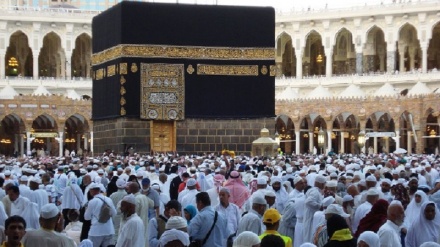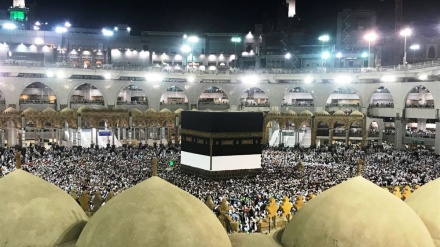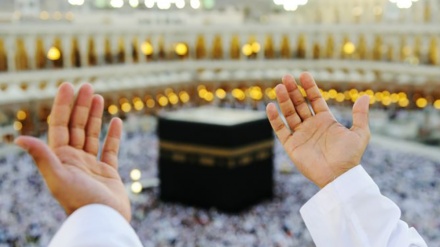Hajj, Symbol of Obedience to God (9)
Welcome to the 9th episode of an interesting account of the Hajj pilgrimage – a spiritual journey which is obligatory once in a lifetime for every able-bodied person who has the financial means to undertake it without become a pauper in doing so.
Now we have an interesting account of a pilgrimage to the Symbolic House of the Unseen but Omnipresent Creator of the universe, by a person whose presence the holy Ka’ba itself recognizes.
It was the Hajj season. Throngs of Muslims were making circumambulation of the holy Ka’ba. Many were jostling with each other to try to reach the Hajar al-Aswad or the Sacred Black Stone in order to kiss it, but had to struggle to achieve their aim. Many couldn’t succeed despite their position and prestige.
Among those who despite making efforts couldn’t reach the Hajar al-Aswad was the Omayyad governor of Mecca, Hisham ibn Abdul-Malik, who would later become a caliph – and a bloodthirsty one.
Suddenly, to his astonishment, a person whose face glowed with piety approached the holy Ka’ba, and the people respectfully gave him way to reach the Hajar al-Aswad and kiss it with reverence. It was not a solitary instance, but whenever this venerable man desired the people politely gave way, and he in turn courteously thanked the pilgrims and gave them the opportunity to touch the Hajar al-Aswad.
Hisham recognized the person. It was none other than Imam Zain al-Abedin (AS), the great grandson of Prophet Mohammad (SAWA) and the survivor of the heartrengding tragedy of Karbala.
However, in a haughty manner, the Omayyad governor, said to the people around him: Who is this man?
Among the people around was the famous Arabic poet Farazdaq, who was known for his sharp wit and reverence for the Prophet’s Ahl al-Bayt.
Fearlessly he answered Hisham by composing on the spot an extempore poem in praise of the 4th Imam of the Ahl al-Bayt.
Some of the couplets of this famous poem which is regarded till this day as a masterpiece of Arabic literature, are:
“This is he whose ability the valley (of Mecca) recognises, and whom the
(Sacred) House recognises (as do) the sanctuary and the area outside the
sanctuary (al-Hill).
This is the son of the best of all Allah’s servants This is the pure pious
man, the pure eminent man.
When he comes to touch the corner of the wall of the Ka‘ba, it almost
grasps the palm of his hand.
He takes care to be modest and he is protected from his terror. He only
speaks when he smiles.
None of mankind has within their souls such primacy as he does nor such
grace as he does.
Whoever knows Allah, knows his friend (wali). Religion is from the
House of this man.
When Quraysh saw him, their spokesmen told of the outstanding qualities When Quraysh saw him, their spokesmen told of the outstanding qualities of this man which indicate (his) nobility.”
AS/ME


